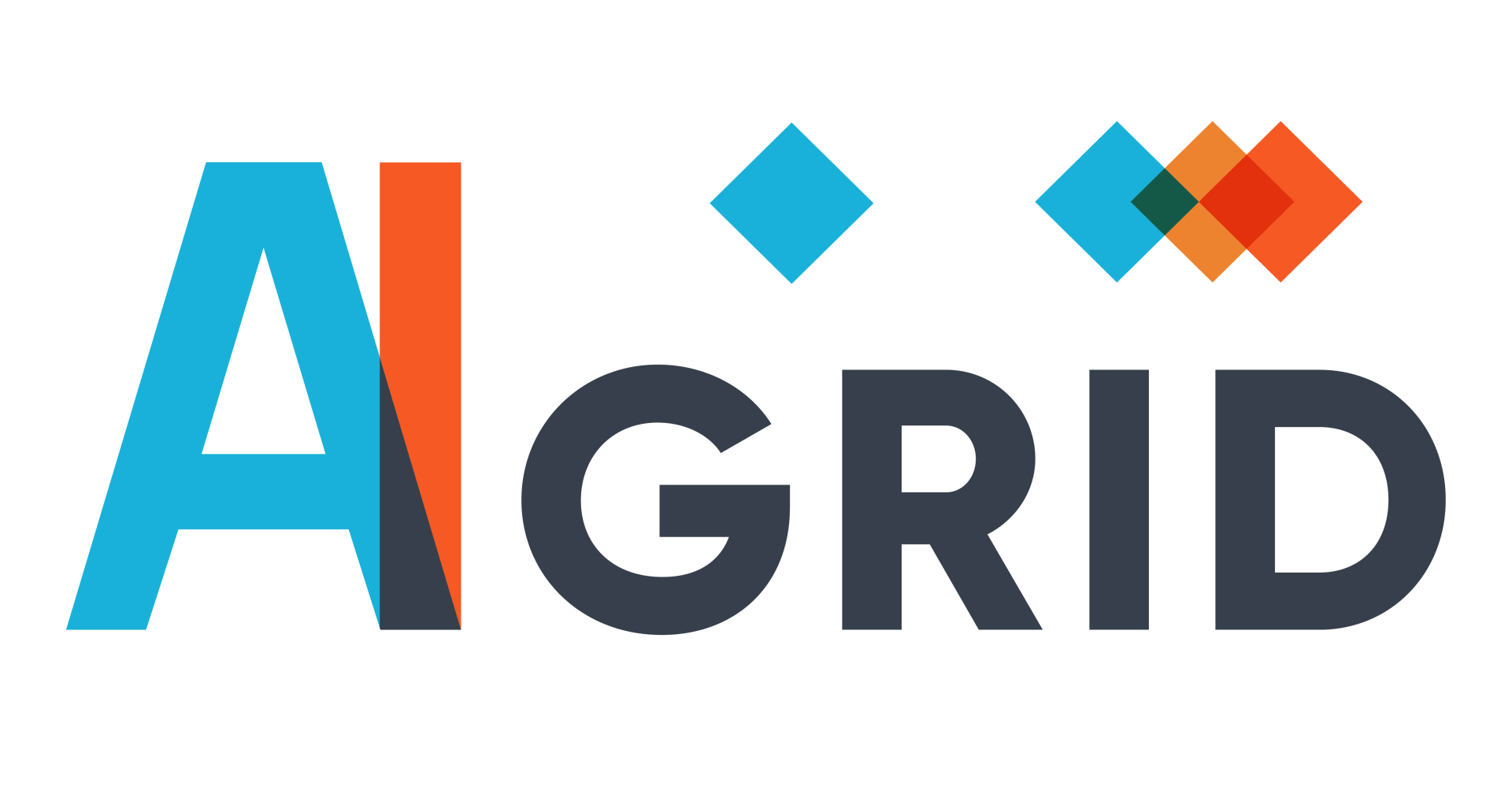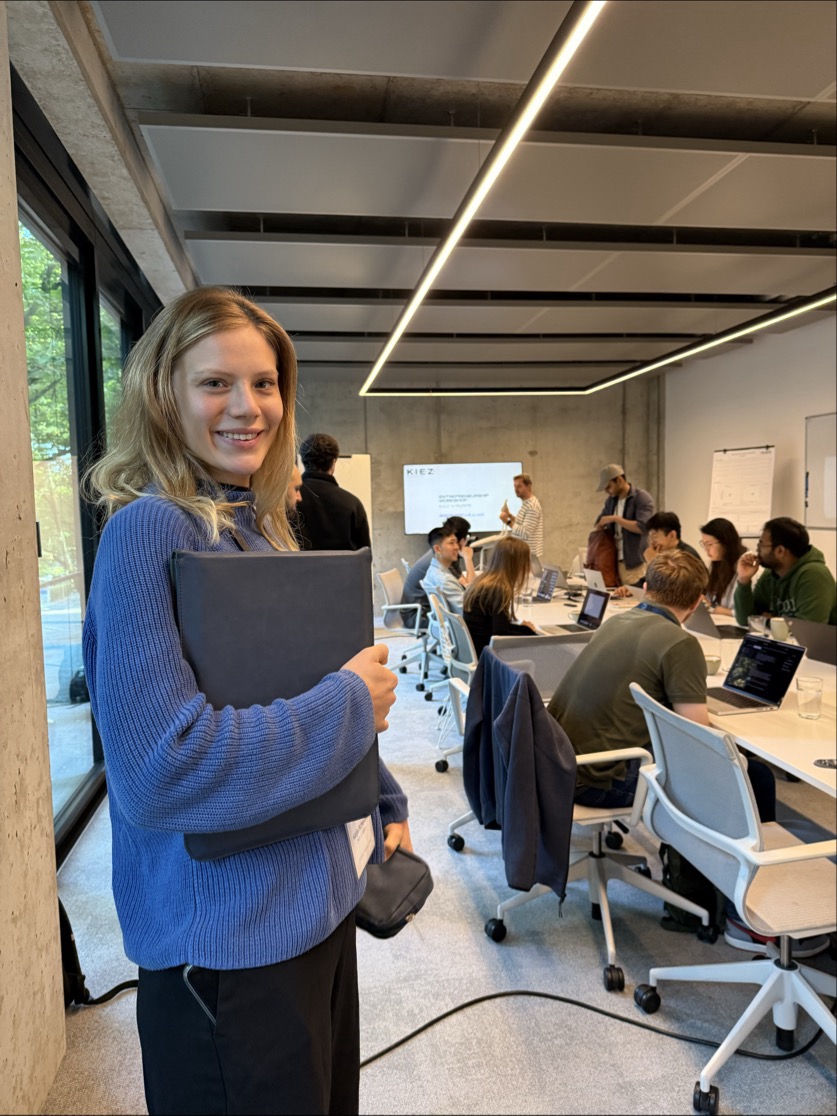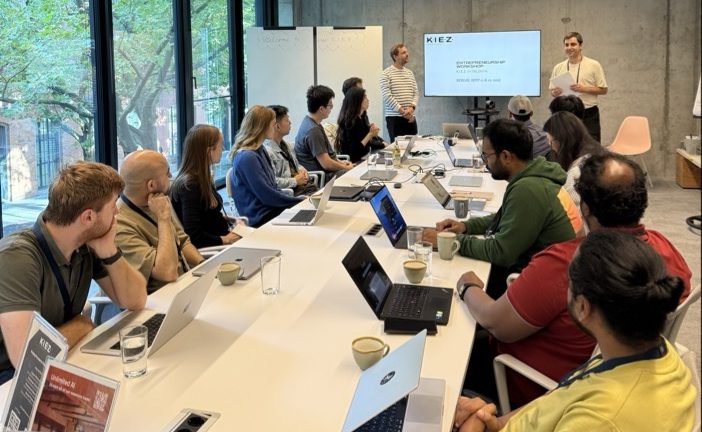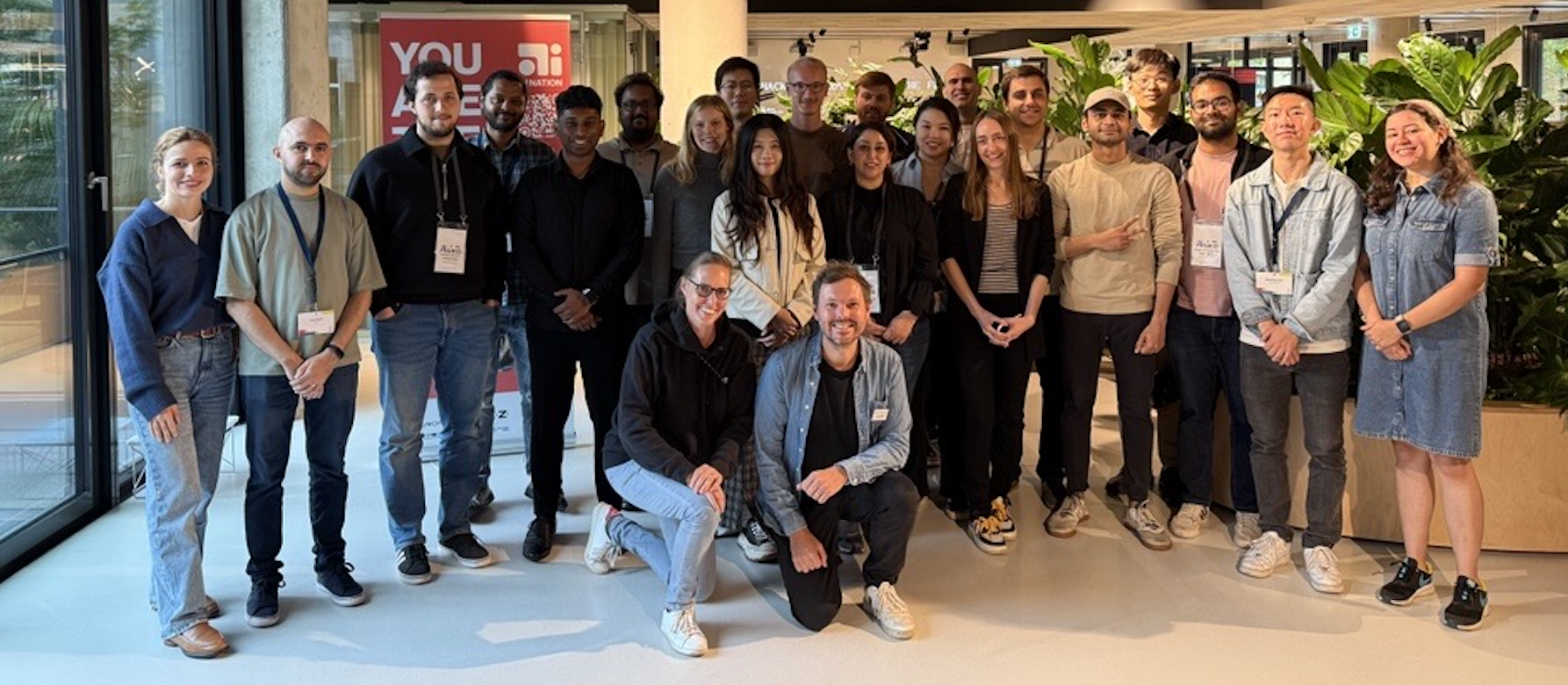Many researchers know the situation: spending hours in the lab or at the desk, pursuing an idea, improving it, discarding it, starting over—always with the goal that their work will one day make an impact. Eventually, however, a crucial question arises: How can I reach a wider audience with my research? How does an academic project turn into a startup? And where can I find suitable partners or investors?
It was precisely these questions that brought twelve members of the AI Grid network to the KIEZ Entrepreneurship Workshop 2025, held on September 11–12 at the Merantix AI Campus n Berlin. Together with our sister project Software Campus under Talentik GmbH, we collaborated with K.I.E.Z. – the Artificial Intelligence Entrepreneurship Center (AI Nationsto create a framework where researchers could explore the entrepreneurial side of innovation. The goal was ambitious: to ease the transition for young scientists from the academic world into the practice of starting a business.
The Starting Questions
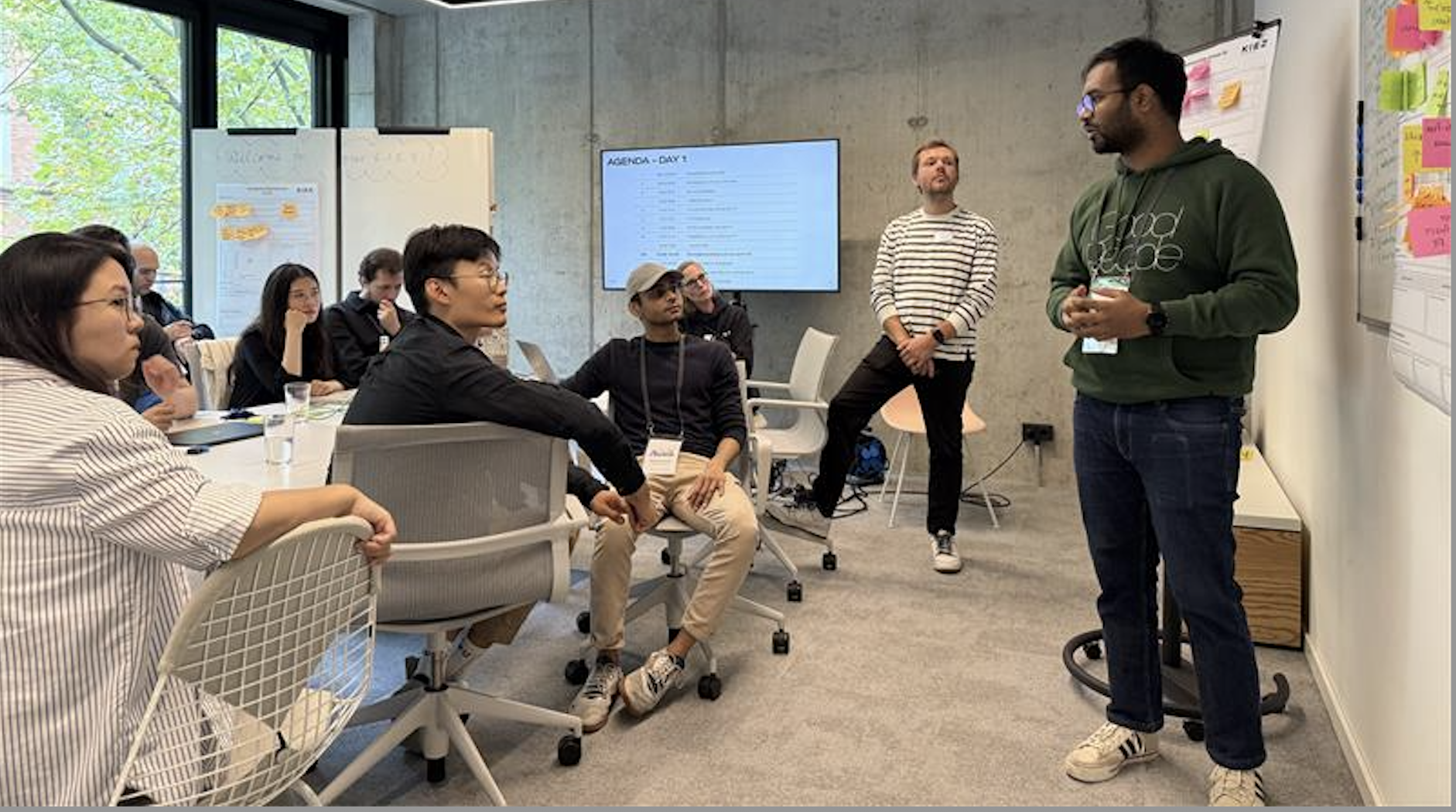
At the outset, all participants formulated a central question they hoped would be answered over the two days. The collection of questions revealed how much uncertainty exists when entering entrepreneurship:
- How can an idea be developed into a viable project?
- Do I, as a person, fit in a startup at all?
- How detailed should investor information be?
- How do stakeholders and customers think?
- What role does handling uncertainty play?
- How can I recognize a good product idea?
- What can I learn from experienced founders?
- How can I enter a startup on equal footing?
- How can research be aligned with market needs?
These questions were personal, pressing, and set the tone for the entire workshop.
The Workshop Process
Four teams each developed a business model for a case study in the field of multimodal AI systems. The topics covered different industries:
- Health – HealthTechPlus: Supporting elderly people with cognitive impairments through monitoring.
- Education – EduSys: Personalized learning paths using AI-driven personalization.
- Industry – IndustryFlow: Detecting workflows and supporting employees in real time.
- Agriculture – AgriBotics: Precision agriculture with AI-controlled robotic solutions.
Guided by experienced experts, ideas were turned into concrete concepts. Teams developed use cases, tested tools, created presentations, and presented their results to a jury—almost like real funding rounds.
Day 2: From Idea to Pitch
On the second day, teams presented their projects. Each group selected multiple speakers to convey different perspectives. The focus was clearly on collaboration and learning rather than competition.
Particularly valuable was the feedback from fellow participants: practical, open, and improvement-oriented. While the jury gave the final verdict, the emphasis was on exchange, cooperation, and new connections.
Reflections and Insights
In the closing session, participants reviewed which of their original questions had been answered. Many gained new insights, including the following:
- Collaboration and clear structures accelerate the implementation of research ideas.
- Contacts with large companies are built through trust and credibility.
- Joining communities helps expand networks strategically.
- Niche markets can be profitable if funding is in place.
- Research and market requirements can be aligned.
- Feedback uncovers uncertainties and improves concepts.
- An academic career and entrepreneurship are not mutually exclusive.
- Psychology and communication are key for stakeholder management.
- External support increases the chances of success.
- Early and clear goal definition saves resources.
- Planning and direct engagement create balance.
One participant summarized her experience: The greatest success was developing a completely new idea with a new team in a short amount of time.”
Building Bridges
The KIEZ Entrepreneurship Workshop 2025 showed that innovation does not stop in the lab. With the right mindset, methods, and support, research projects can become ventures that have tangible impact in health, education, industry, or agriculture.
For the young researchers of AI Grid, these two days were not just about presentations—they were about answering personal questions, finding courage, and seeing themselves as potential founders. he key message: if you have a valuable idea, take the leap.
